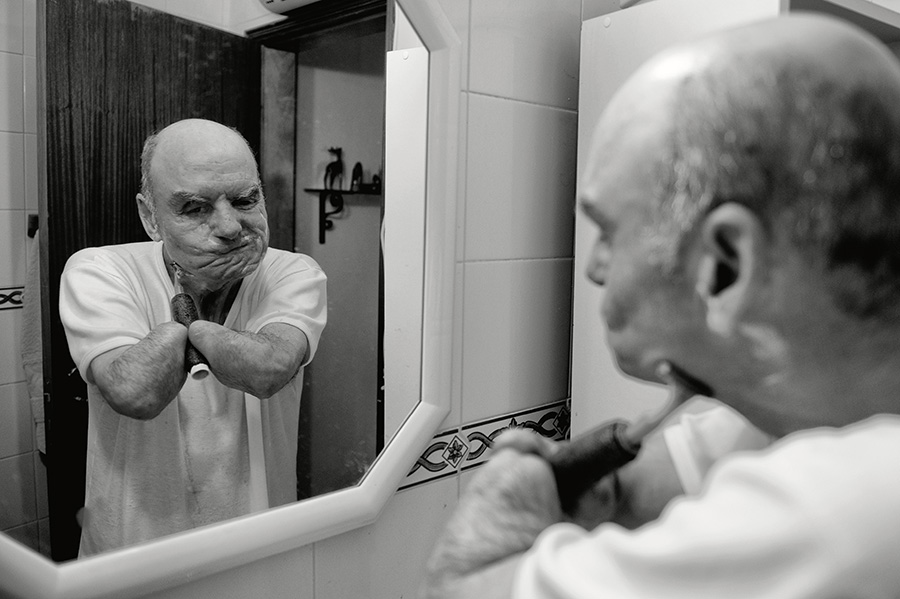Photojournalism: Honorable Mention 2015 (professional)
ENTRY DESCRIPTION
In the 1961 Portugal started a war in one of his colony, Angola. Soon problems emerge also in the others African Colonies, Guiné Bissau and Mozambique, the war quickly expanded on the three fronts. This bloody war, that was going to be named Portuguese Colonial War, ended only in the 1974. In Portugal an entire generation of men between 18 and 30 years old was receiving a mandatory call to go to the war.
During the postcolonial war, in the three fronts the number of men sent was 149 thousand (the Portugal population is 10 millions including elders, women and children); 8289 died on the fields and 15507 report injuries; in these statistics are not counted all the ones that later suffered of PTSD. For the ones injured the worst still have had to come. In fact back to Portugal, the regimen first and the Portuguese govern after the 1974 didn’t wanted to show to the population the effect of the war. The people injured were hidden and segregated in military hospitals where only few people was able to access and also after they was dismissed several fundamental rights wasn’t recognized: many amputated soldiers have had to wait years before receiving the prosthesis for their lost limbs and many veterans they have had to fight for their rights to obtain their deserved soldier annuity. The Portuguese Govern recognized the PTSD as disease only in 1999, 25 years after the end of the war, a large number of veterans of the Colonial War still suffer of PTSD while there are still former soldiers that fought for their country that are not receiving the proper treatment for this disease. Mr Silvério Jorge Rodrigues shave himself. A hand bomb explodes in his hands during the war in Guine Bissau.
AUTHOR
Tommaso Rada is an Italian photographer currently living in the north of Portugal, in Braga. His works has been published in several magazines and newspapers such as Financial Time, Der Spiegel, Monocle, Popoli, Popoli e Missioni, Private online edition, Expresso, Helsingin Sanomat, Courrier International, Le Pelerin and Forbes Brazil. He collaborated with Unicef Mozambique, Comunità di Sant’Egidio and Habitat for Humanity Portugal.
In 2012 he won the first prize of the Environmental category of the Estação Imagem contest, the most important photojournalism Portuguese contest, with his reportage “The Last Forest” on deforestation in Mozambique. In 2013 he was finalist in the AddRetouch documentary photography contest and he was selected for the Encontros de Imagens – Emerging photographers prize. In 2014 he won the second place in the contemporary issues of the Portuguese contest Estação Imagem, he has been selected as finalist of Beca Autores Noveles 2014 and he was finalist of the international award Revela and of the Manuel Rivera-Ortiz Foundation for Documentary Photography Grant.
back to gallery
